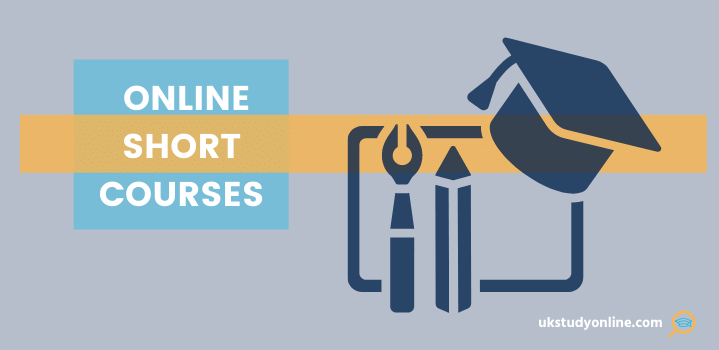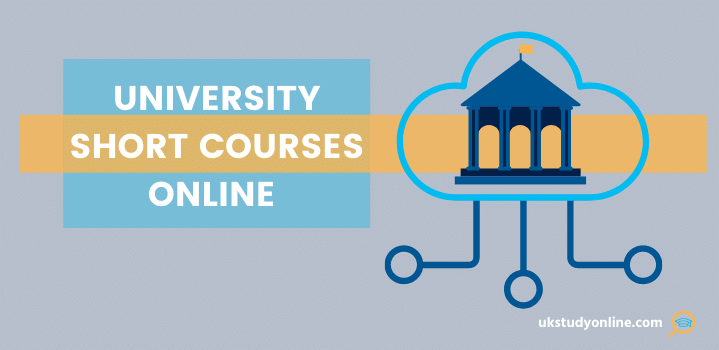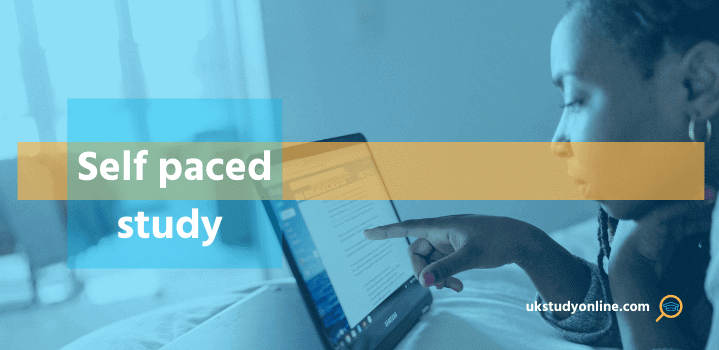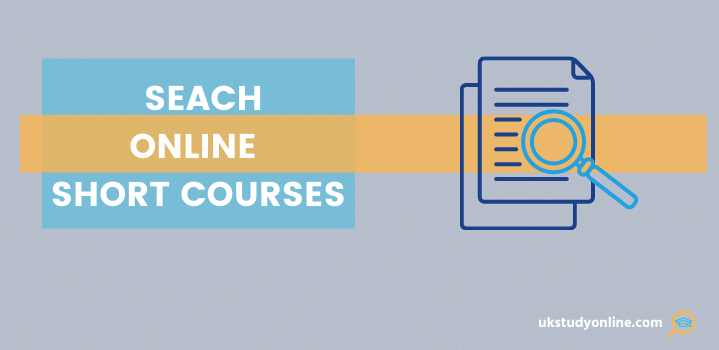
Short courses run for a fixed time and can cover a specific topic or introduce a subject area.
They’re great for people who need to acquire skills and knowledge but don’t have the time to commit to a diploma, undergraduate degree or master’s degree.
Short courses can help you gain proficiency to succeed in the field of your choice and, for many, act as a stepping stone to further study and higher education.
Types of online short courses
The amount of learning content available, with the flexibility to learn a new skill when and where it suits the learner, has never been greater.
Online short courses come in all shapes and sizes. With as many different learning formats, from online tutorials, quizzes and interactive tests through live group activities and individually paced self-study.
Online short courses are an excellent resource for anyone who wants to acquire new skills to further career ambitions or personal development.
There are no set categories for short courses, but we have tied to give you a quick overview of the main types of short courses available online.
Professional development
Designed for people working in a specific area who want to upskill, refresh or update their knowledge. Short online professional development courses can be anything from a few hours to several weeks. These can be industry-specific, skills-based or a mixture of both.
Assessments tend to be comprehension checks and provide feedback on areas to revise before moving to the next unit. On completion, they provide a certificate or badge to display on social profiles.
Personal development
These online short courses enable people to build their knowledge and skills to further themselves. They are great for developing personal passions, hobbies or life goals.
Generally, courses taken for these reasons are non-credit bearing, meaning there may be no exams or rigorous assessments. However, on others, a learner may develop a portfolio of work from the units covered.
Professionally accredited courses- CPD
CPD stands for Continuing Professional Development. If you work in certain professions, such as medicine or law, you need to show that you keep on top of your specialism by demonstrating continual professional development. CPD courses prove that the learner is dedicated committed to their chosen profession.
Each CPD course will have a set number of CPD hours awarded. A CPD hour is a notional unit that measures active learning. The CPD certification service is an independent body that accredits courses with CPD hours.
University Online Short courses
There are online short courses from universities. They can cover all areas of academia, from subjects such as the Arts and Media to Computing, Business and Management.
These programmes are great for adults who want to change careers, update knowledge or learn something new. All university online short courses provide certificates of completion that display the university logo, name and date of successful completion.
These courses can give access to world-leading academics and resources. Some have live classes and tutorials, whereas others are more self-paced with recordings of lectures.
Credit-bearing online short courses
Credit-bearing online short courses award learners with credits upon successful completion. They benchmark the level and amount of learning.
Students can use these credits to count towards a full degree or Masters on eligible courses. These are a great way to try new subjects without committing to a full qualification for many students. This article has more information on credits and CATS points.
Tutor-led taught courses
Taught online short courses have live or recorded lectures with tutor-led learning and feedback. Generally, they are delivered through virtual classrooms and discussion boards.
There will be online discussions and recap exercises to test comprehension. The tutor will provide feedback for each student before moving on to the next area of study. Often there are graded assignments that are handed in online. These courses are the most similar to a traditional classroom environment. However, with individual feedback and help from the tutor or trainer, these courses typically cost more.
This article on online learning covers this type of learning experience in more detail.
Self-study online short courses
Self-study online short courses often break down the learning into small chunks. Some may have deadlines, while others are open-ended. They provide reading materials, recorded lectures and assignments. In addition, they often have regular tests, quizzes and comprehension checks as you progress through the learning.
The benefit of this learning format is the flexibility. You have access to all the course material and information. In addition, there is often an online forum as part of the course where students can discuss and help each other.
The downside is that the dropout rate is high without the direction of a tutor or a timeframe to complete units. These courses are easy to join but just as easy to leave.
MOOCs
MOOC stands for Massive Open Online Course. MOOCs are online courses aimed at unlimited participation and open access via web platforms.
MOOCs generally have a large number of free courses listed on them as well as paid for tutor-led programmes. Some are entirely free to join. On others, you either pay a fee to participate for a year or a fee to have your work assessed, exams graded and or a certificate issued.
Is a short course a qualification?
A short course can lead to formal certification. However, it is not a full qualification in its own right, unlike a degree or diploma.
Short courses can be more flexible, less stressful and a more achievable way to gain new skills and understanding.
Some short courses can count towards full qualifications (Credit-bearing courses) or professional memberships (CPD courses). Universities and colleges generally offer credit-bearing courses. CPD courses are typically accredited by professional bodies when taught by private education providers.
How long is a short course?
Generally speaking, a short course is any course that is less than a year and is not a full qualification such as a Diploma or higher. Some short courses can last only a few hours and are bite learning, while others require dedicated time each week to complete.
What level is a short course?
You can find short courses at any level, from beginner to advanced. University short courses are generally more advanced and go up to Master’s level. CPD courses that count towards professional accreditation also tend to be more rigorous.
However, many short courses are designed to develop new skills or provide a gentle introduction to an area. Some can be creative and explore an area or practise skills. In addition, they provide a way to get feedback from like-minded people in a social learning environment.
Online vs in-person short courses
Online short courses have exploded over the last few years. There are online short courses in everything from languages to personal development, business skills and creative areas. A large driver of this has been MOOCs covered in more detail above.
When you take online short courses, you don’t have to travel or sit in a class for hours on end. Instead, you can learn at your own pace online using online tutorials, videos, discussions.
However, for some courses, especially where there is a practical element, in person can still be preferable.
Do you get a certificate?
Yes, most online short courses will have a certificate, either digital or paper.
For CPD and credit-bearing courses, you will also get a transcript covering what you have learnt, grades and, in some cases, hours spent on the programme.
Other online short courses that do not have CPD or have credits usually provide a certificate of achievement but no transcript. These courses are great for your personal growth and CV but do not count towards access to higher-level courses.
When you take an online short course, you may receive badges or certificates that you can add to your Linkedin or Facebook profile as well as your CV.
Do you have exams on a short course?
Credit-bearing and CPD courses are more likely to have some form of assessment. An example could be a timed exam or, more commonly, assessments based on a portfolio of work marked by a tutor.
Whereas courses for personal development are more likely to be non-assessed. These courses often have short tests and quizzes for students to check they have understood the material covered.
Costs
The costs of a short course vary widely, from thousands of pounds charged by top-ranked universities on their executive education programmes down to free classes on most popular MOOC platforms.
Generally, if a course is credit-bearing or can count towards CPD, it will cost more than a course designed for personal development and growth.
Financial support
There are no government back loan schemes available for short courses, and most students self-fund their studies. However, if your ideal short course is work-related, it is definitely worth asking your employer to see if they will help with the costs.
Most larger companies have a training budget and a set process for sponsoring their staff on short courses. We have a guide on asking for employer sponsorship that can help you prepare your request.
Find an online short course
Short courses are an increasingly popular way for people to learn new skills, explore a career path or dip their toes in the water of something they might want to do.
With so many different types and formats available online, there’s no shortage of options when it comes to finding one that best suits your needs.




